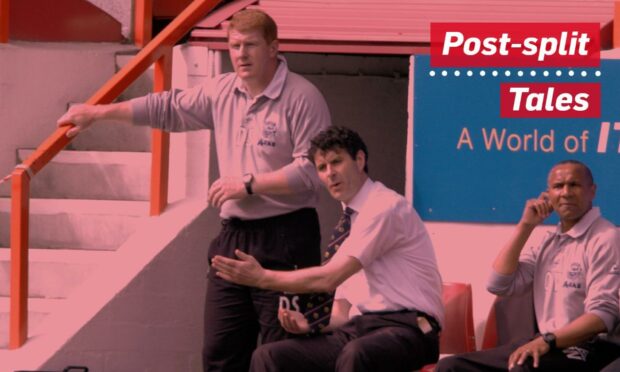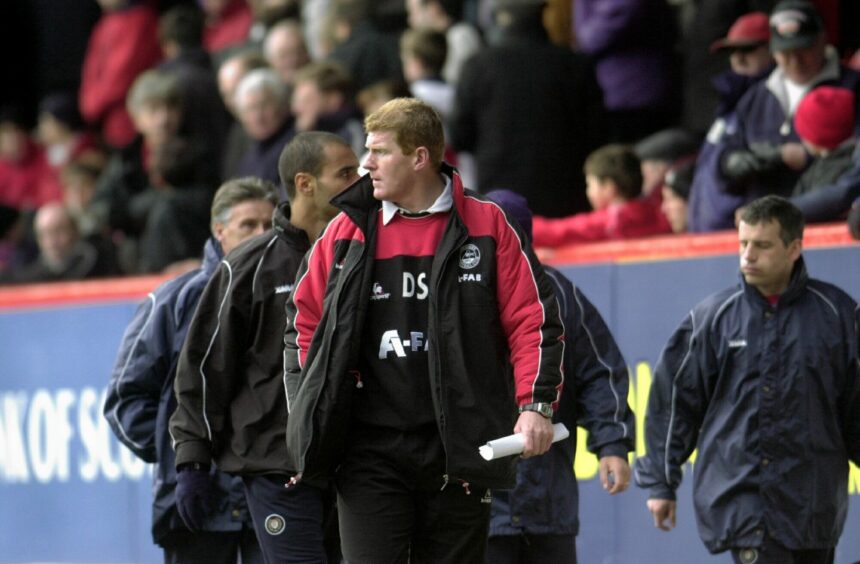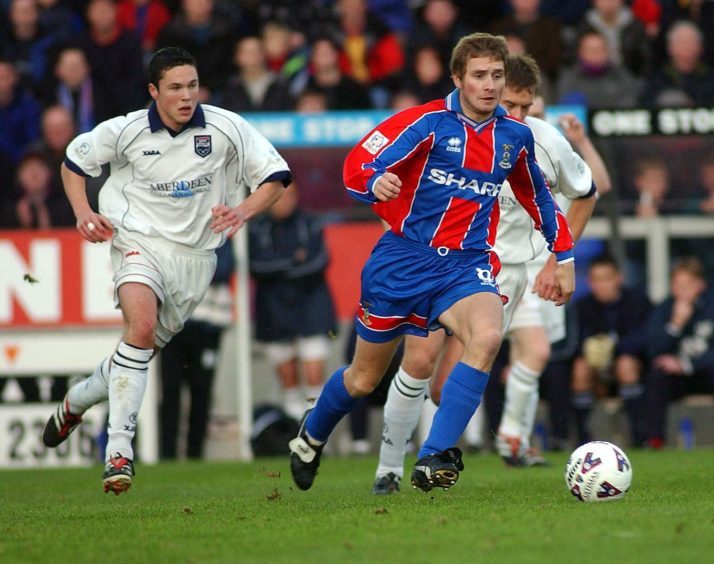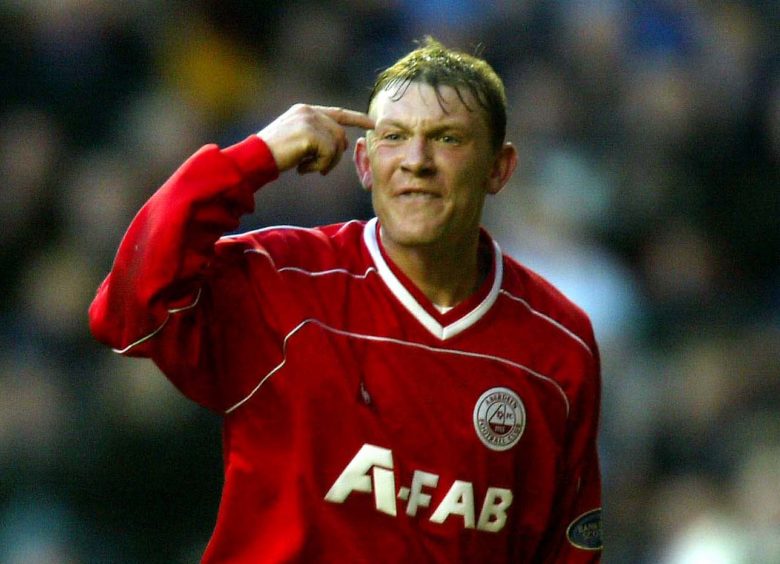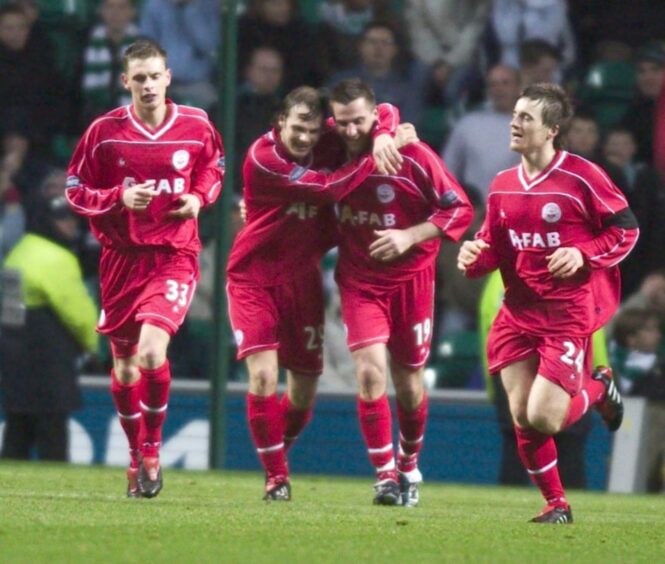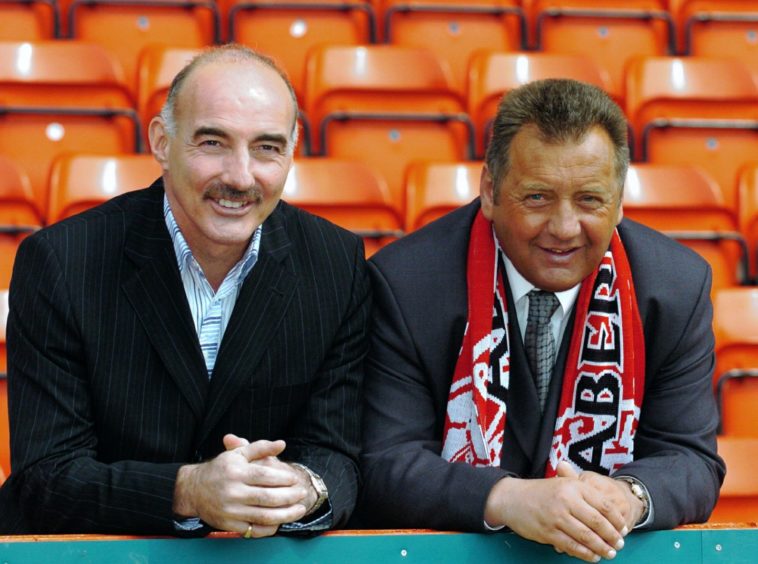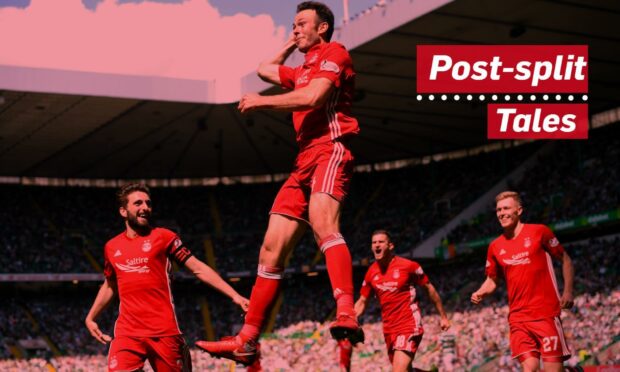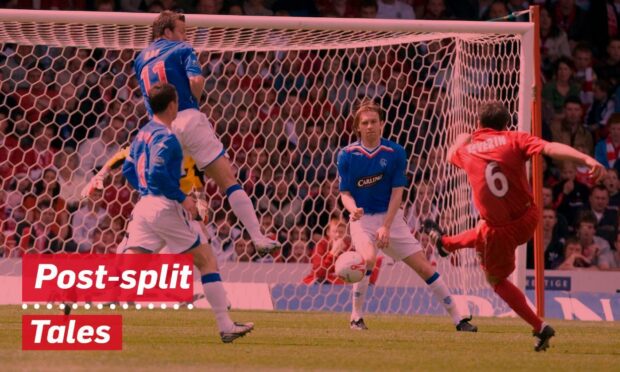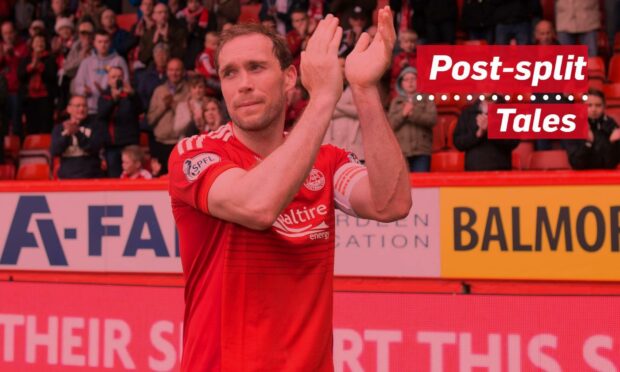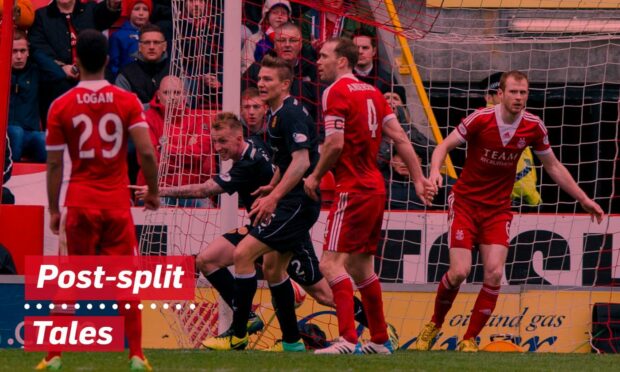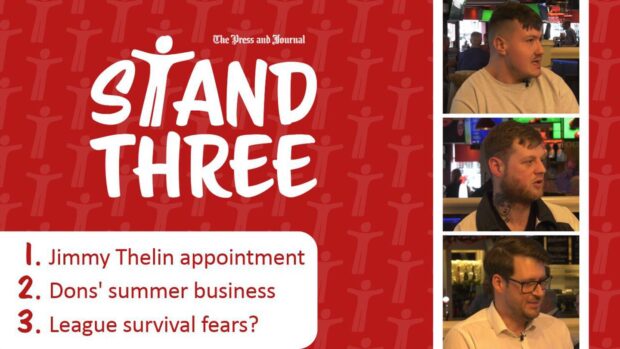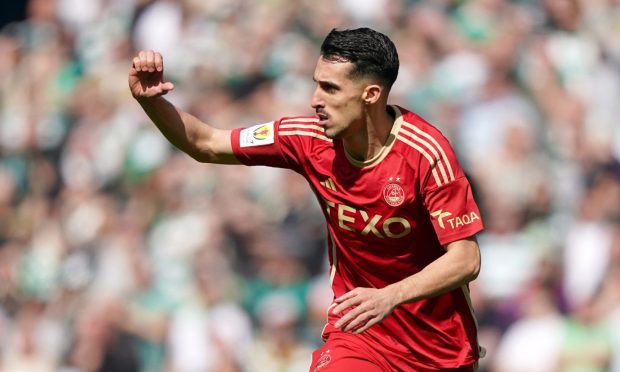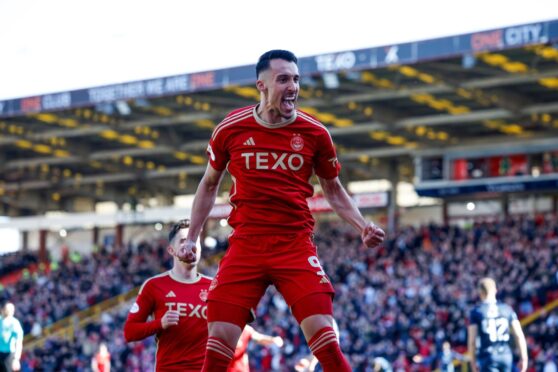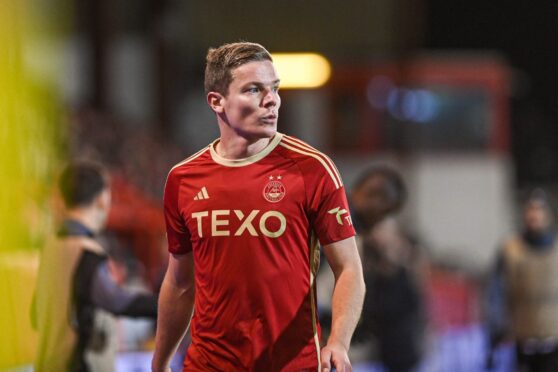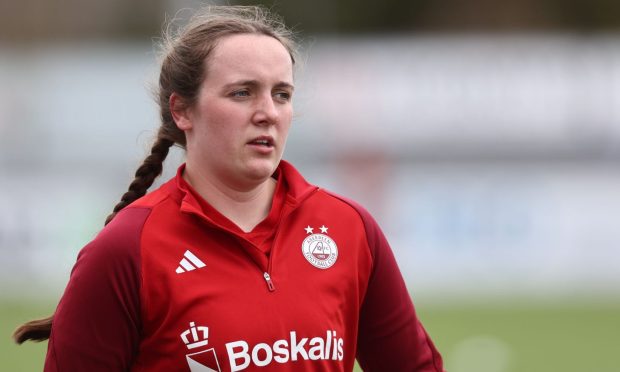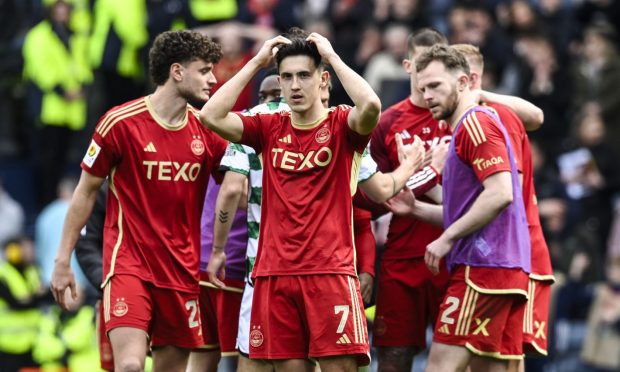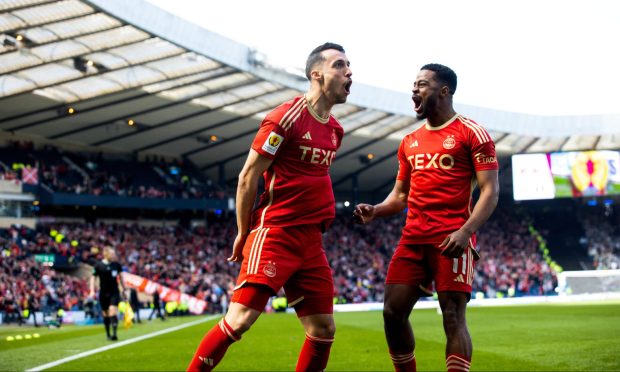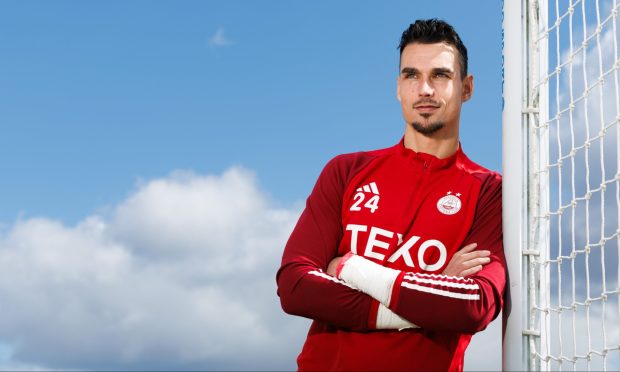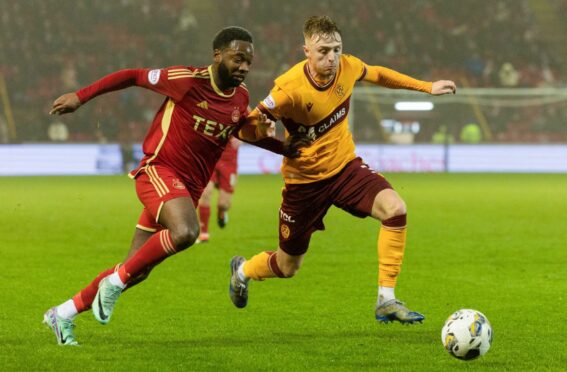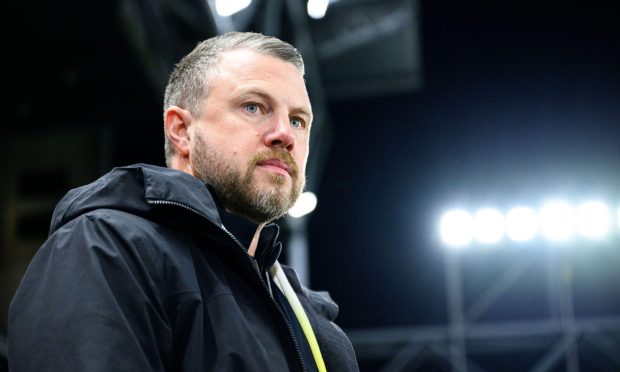Duncan Shearer believes a parting of the ways with Aberdeen for him and boss Steve Paterson was inevitable in 2004.
The former Dons striker returned to Pittodrie as assistant to Paterson in December 2002, but his second spell with the club proved to be a rollercoaster ride of emotions.
Paterson and Shearer had been lured away from Caley Thistle in the old First Division for a chance of helping the Dons climb the table in the Scottish Premier League.
But the challenge of managing the Dons was a daunting one with the need to reduce the wage bill and lead the club into the top six of the SPL two difficult, diametrically opposing tasks.
Paterson’s eye for a player and getting the best out of what he had was what attracted Aberdeen chairman Stewart Milne to him in the first instance.
Former Dons boss’ demons came to the fore at Pittodrie
But an ill-fated incident in March 2003, during the duo’s first term in charge, would define his tenure – with the Dons boss missing a home game against Dundee due to an all-night drinking binge on the eve of the match.
Paterson was ashamed and distraught, but the Reds stood by their manager and offered him support.
However, with no sign of that support bringing any progress on the field, the writing was on the wall and, 14 months later, following a poor 2003/04 campaign where the club finished 11th, the decision was made to make a change to the coaching staff.
When the call came to make a change, Shearer was not surprised.
He said: “I knew it was coming. You couldn’t go through the season we had, and given everything that had happened in our time at the club, and expect to continue.
“Stevie came in after the last game of the season to tell the staff the chairman had told him to get prepared for next year.
“I looked at (coach) Oshor Williams, knowing how Aberdeen work, knowing the people who work there and knowing what had happened during the season – there was no doubt we were about to lose our job.
“That’s my own opinion. I told Oshor that we were done and, sure enough, we came in a couple of days later for a meeting to be told it was over.
“I had no qualms with the decision.”
Cost-cutting measures were needed at Pittodrie when duo arrived
Following the Ebbe Skovdahl era, and the significant backing offered to the Dane, the arrival of Paterson and Shearer signalled a change in approach at Pittodrie.
The club had significant debt in the region of £7 million which needed to be addressed, while the wages to turnover ratio was 73%.
An overall loss of £2.39m for June 30, 2003, reinforced the size of the task.
Drastic action was required and Paterson was charged with the task.
Shearer said: “I remember Stevie working out, by the time we had got rid of the likes of Roberto Bisconti, Eric Deloumeaux and the other higher earners, we were saving the club £7,000 a week on wages.
“People would have understood that a lot more had things not gone the way they did.
“The job we were asked to do was overlooked because of what had happened in terms of Stevie and what was going on in his life at the time.
“There was a big cut in the budget.
“Steve had a reputation of picking up players who had been discarded, particularly Aberdeen boys actually, and getting the best out of them.
“Guys like Dennis Wyness and Russell Duncan were two in particular who had done really well for him at Inverness.
“When you look back at it now, what we were being asked to do was get the club in the top six and do it on the cheap.
“The aim was to work harder at youth level and bring our own players through, but it was easier said than done.”
Management team turned bargain hunters
Paterson and Shearer’s tenure was a world away from Skovdahl era. From the days of £300,000 being spent on Thomas Solberg for Skovdhal’s team, Paterson and Shearer were cast in the role of bargain hunters.
By the time the 2003-04 season had started, goalkeeper Peter Kjaer had retired, Derek and Darren Young had departed for Dunfermline and Jamie McAllister had joined Livingston.
In their place were Jamie McQuilken, Steve Tosh, Markus Heikkinen, David Zdrilic and Bryan Prunty.
McQuilken and Tosh joined Paul Sheerin. All were lower league players who the duo knew could do a job within the Dons’ budget.
But, as Shearer recalls, it was a short-term solution for the management team and the club.
He said: “There was an awful lot of money spent beforehand. Bisconti was on a ridiculous wage and there were a few others in the same category who had to be cut because they weren’t performing.
“But, when players are on good contract, you have to go to them almost tongue in cheek and ask them if they will take a pay-off and leave. A lot of players said no.
“You have to work hard and a lot of money was spent paying off players then trying to replace them.
“We went down the line of Sheerin and Tosh, signing guys for £15,000. We tried to get Wyness back, but he decided to go to Hearts.
“They were guys we knew and trusted and, although they did good jobs for us, we knew they were stop-gaps until we tried to level things out financially.
“It was a really hard time for us.”
The night the Dons humbled the Hoops – and O’Neill clipped Paterson round the head for it
The 2003/04 campaign – Paterson and Shearer’s second season – was a forgettable one, with the one highlight being the final game before the split when the Dons travelled to Glasgow to face Martin O’Neill’s dominant Celtic team.
It was Celtic, unbeaten in 77 home matches and crowned league champions the week before, against a Dons team as threadbare as it has ever been for such a daunting game.
Among the starting 11 for the Dons, who had not won in Glasgow in more than a decade, were Craig Higgins (18), Scott Muirhead (19), Scott Morrison (19), Richie Buckley (18) and Richard Foster (18).
Surely there would only be one outcome?
But, incredibly, Aberdeen stunned the Hoops, coming from behind to win 2-1 thanks to David Zdrilic’s late winner.
The Dons management were as speechless as their hosts.
Shearer said: “We went to see Martin O’Neill in his office afterwards. We went in and he clipped Steve on the back of the head.
“He said: ‘you come up here with a shower of kids and beat us 2-1. You just never know what is round the corner in football.’
“Let’s be honest, it was a freak result and one which painted over a thousand cracks – but it was nice for the fans who had travelled there.
“I had been to Parkhead as a player and got nowhere near a win.
“We rode our luck, but we were able to take our chances when they came along.”
Purse strings loosened following changing of the guard
The incredible win would be the last Shearer and Paterson would celebrate as five defeats in the post-split fixtures left Aberdeen in 11th place in the SPL.
A few days later, the management team were on their way out with Willie Miller back at Pittodrie as football executive.
Miller’s first task was sourcing a new management team and it was Dunfermline duo Jimmy Calderwood and Jimmy Nicholl who were appointed.
Their arrival heralded a change in approach.
For the departing Shearer, it was a bittersweet moment.
He said: “It was funny seeing Willie and Jimmy come in and then players like Scott Severin being signed.
“When Willie was brought on board, he obviously said: ‘If we are going to bring the two Jimmies in, we have to back them.’
“They were given a good crack at it, which is why the club shot back up the table again.
“That’s how football goes, I’ve no issue with that.”
